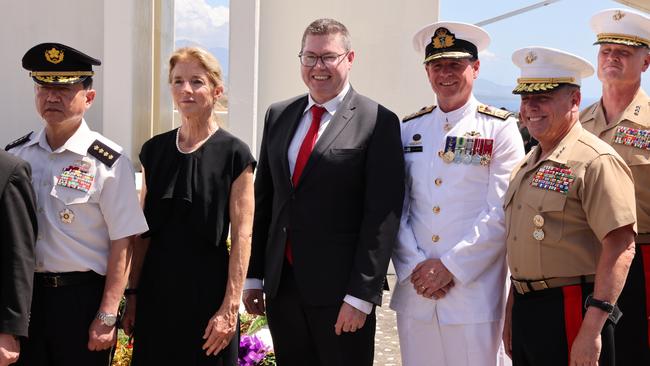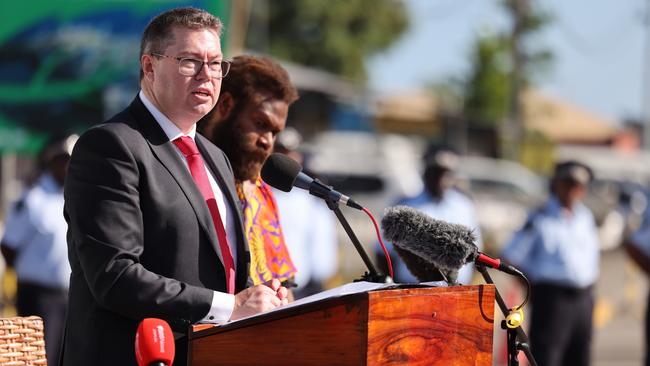Battle of Guadalcanal personal for Kennedy after Solomon Islanders saved father’s life
US ambassador to Australia Caroline Kennedy offered a personal thanks to two Solomon Islanders as Australia, New Zealand and Japan joined America in commemorating the 80th anniversary of the battle of Guadalcanal.

US ambassador to Australia Caroline Kennedy has offered a personal thanks to two Solomon Islanders who saved her father John F. Kennedy’s life during World War II, as Australia, New Zealand and Japan joined America in commemorating the 80th anniversary of the battle of Guadalcanal.
Considered a turning point in the war, it was the first major Allied offensive in the Pacific. US and Allied forces fought for more than six months between 1942 and 1943 to hold Guadalcanal – the largest island of Solomon Islands – and stop Japanese efforts to disrupt supply routes to Australia and New Zealand. JFK was in command of a US Navy patrol boat which was carved in two by a Japanese destroyer on the night of August 1, 1943.
“While we all owe a debt of gratitude to the Solomon Islanders who risked their lives during the Pacific campaign, my family and I owe a personal debt of gratitude to two Solomon Islander Scouts – Biaku Gasa and Eroni Kumana – who saved my father’s life,” Ms Kennedy said.
“Thanks to them, he and his crew survived the sinking of PT-109 and (he was) able to return home and eventually run for president. His experiences here made him the man and the leader that he was, just as the experiences of so many others shaped the men and women they would become. It resolved him to seek a more peaceful and just world, and he gave his life for his country. I’m deeply touched to be here today, knowing that I might not be here if it were not for Biaku Gasa and Eroni Kumana.”
International Development and the Pacific Minister Pat Conroy said Solomon Islanders were drawn into the conflict and formed a vital part of the Allied logistical effort, enduring hardships and sacrifice.
“I doubt those brave Solomon Scouts and Coastwatchers could have imagined that the terrible conflict brought here to this beautiful country would still be affecting their children and grandchildren 80 years down the track,” Mr Conroy said. “It is unbelievable and terribly sad that the curse of unexploded ordnance still afflicts Solomon Islands today.
“Australia recognises this terrible legacy and remains committed to working with the Royal Solomon Islands Police Force to solve this ongoing WWII-era problem.”

About 1600 Allied and an estimated 24,000 Japanese troops were killed in the campaign.
US Deputy Secretary of State Wendy Sherman, whose father also fought in the battle of Guadalcanal as a marine, said no one could say for certain how many Solomon Islanders lost their lives “when their home became a battlefield”.
“Today we are once again engaged in a different kind of struggle – a struggle that will go on for some time to come,” Ms Sherman said.
“It is up to us to decide if we want to continue having societies where people are free to speak their minds. If we want to have governments that are transparent and accountable to their people. If we want an international system that is fair and orderly, where everyone plays by the same rules and where disputes are solved peacefully.
“If we want to embrace our ability to come together and solve our shared challenges – foremost among them the climate crisis, so understood here, which poses such a profound threat to the people of this region and to the security of the world.”






To join the conversation, please log in. Don't have an account? Register
Join the conversation, you are commenting as Logout